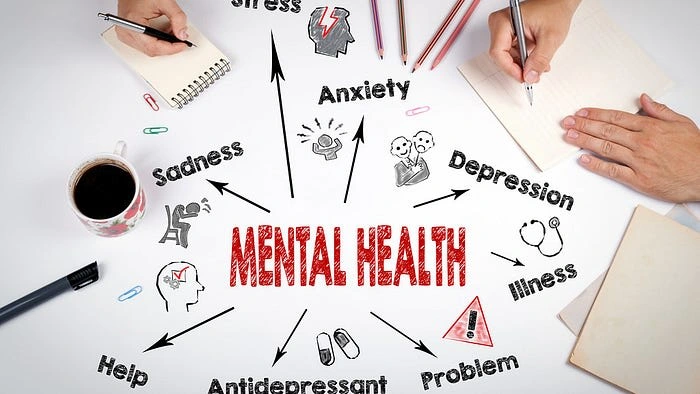Mental Health
Mental Health Includes emotional, psychological, and social well-being. It affects how we think, feel, and act.

Mental health refers to the overall well-being of an individual’s emotional, psychological, and social state. It includes managing feelings, handling stress, maintaining healthy relationships, and making sound decisions. Good Mental health is essential for overall health and quality of life.
“Mental health is not a destination, but a process. It’s about how you drive, not where you’re going.”
Good mental health allows us to cope with the challenges of life, build healthy relationships, and achieve our goals.
There are many reasons why mental health is important. Here are a few:
Mental health affects physical health: Poor mental health can lead to physical health problems, such as headaches, stomachaches, and fatigue. It can also increase the risk of chronic health conditions like heart disease and diabetes.
Mental health affects relationships: Good mental health allows us to form and maintain healthy relationships with others. On the other hand, poor mental health can make it difficult to communicate effectively, manage conflicts, and form close connections with others.
Mental health affects work and productivity: Good mental health is essential for productivity and success in the workplace. Poor mental health can lead to decreased productivity, absenteeism, and difficulties with decision-making and problem-solving.
Mental health affects overall quality of life: Good mental health allows us to enjoy life and experience positive emotions, such as joy, happiness, and contentment. Poor mental health can lead to feelings of sadness, hopelessness, and despair, which can significantly impact our overall quality of life.
Mental health issues can affect anyone at any point in their life, and they can take many different forms, including depression, anxiety, bipolar disorder, schizophrenia, and eating disorders, among others. These conditions can be caused by a range of factors, such as genetics, environment, life events, and brain chemistry.
Mental health problems:
Mental health problems are difficult experiences that make it harder for us to get on with our lives. They include the painful feelings and thoughts that we all had at the time, including periods of sadness, hopelessness, and fear.
Here are some tips for improving your mental health and well-being:
1. Take care of your physical health by eating well, exercising regularly, and getting enough sleep.
2. Practice mindfulness or meditation to help reduce stress and improve focus.
3. Make time for activities you enjoy, such as hobbies or spending time with loved ones.
4. Set realistic goals and prioritize tasks to help manage your time and reduce feelings of overwhelm.
5. Stay connected with others by maintaining social relationships and seeking support when needed.
6. Seek professional help if you are struggling with mental health issues such as anxiety or depression.
7. Practice self-compassion and avoid negative self-talk.
Conclusion:
In conclusion, mental health is a crucial aspect of overall well-being. It is important to prioritize self-care, seek professional help when needed, and promote awareness and understanding of mental health issues. Remember, there is no shame in seeking help and everyone deserves to live a happy and healthy life.
Like this project
Posted Sep 12, 2023
Mental Health Includes emotional, psychological, and social well-being. It affects how we think, feel, and act.
Likes
0
Views
1




